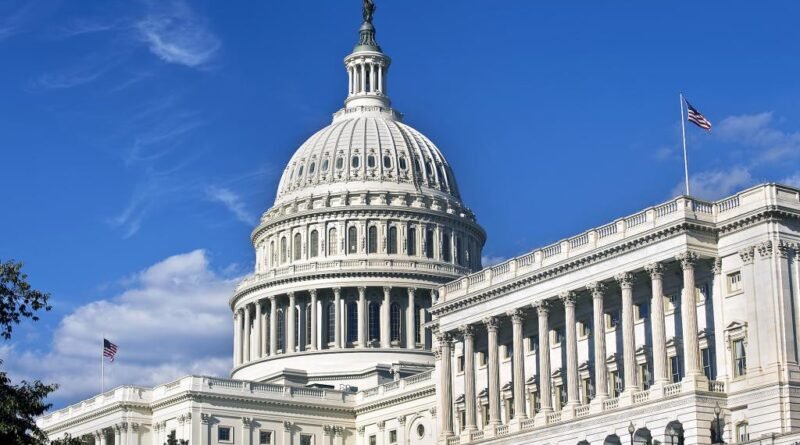Democrats desire a system where the majority holds authority over all others

Throughout my memory, the left has consistently mocked those who highlight that the United States is a republic rather than a democracy.
They view this idea with disdain, much like they do with waving a Revolutionary-era flag.
Some may dismiss the debate between democracy and republic as trivial or a distraction over semantics, but it is not.
Recently, CNN’s Donie O’Sullivan attempted to portray Trump supporters who assert this factual distinction as ignorant authoritarians.
To shed light on the issue, CNN brought in “democracy” expert Anne Applebaum, who stated that, “America is a democracy. It was founded as a democracy . . . the word ‘democracy’ and the word ‘republic’ have often been used interchangeably. There isn’t a meaningful difference between them.”
However, there is indeed a difference.
Look at the modern leftists who aim to dismantle nearly every safeguard we have against mob rule in the name of “democracy” — attacking institutions such as the Supreme Court, the Electoral College, federalism, the filibuster, the Senate, and even the existence of states.
They grasp the distinction, even if only subconsciously.
Consider the leftists who view the “popular vote” not as wishful thinking but as a mechanism to validate presidential elections.
Those who advocate for a direct federal democracy ruled predominantly by a few large states are not interested in a “republic” that derives power from the people, but rather one that strips away local authority and individual freedoms from those they oppose.
Limits on the federal government’s authority over states and the state’s authority over individuals are essential to enable a diverse population in a vast nation to govern themselves and live free lives.
The individuals clamoring to “save democracy” by labeling longstanding federalist institutions as “minority rule” do not view “democracy” and a constitutional republic as interchangeable ideals.
Even governors of smaller blue states who endorse a national vote compact that weakens their state’s power and circumvents the Constitution favor direct democracy over a constitutional republic.
When writers at The Atlantic, where Applebaum is a contributor, mention “The Democrats’ Last Chance to Save Democracy,” they are not lamenting Joe Biden’s excessive use of executive power, but rather the “democratic deficits in the Senate and the Electoral College” — despite these institutions being established to decentralize control.
They understand the distinction.
Democrats who push to “expand” the Supreme Court due to its failure to align with democratic trends are unconcerned about the concept of a “republic.”
Many of the landmark decisions by the high court, such as Dred Scott and Plessy, have challenged the foundations of “democracy.”
Or take the so-called moderate Democrats who seek to eliminate the filibuster or pass massive federal “reforms” with a slim majority, like ObamaCare, without national unity.
They know these “reforms” will overturn countless state and local laws.
They desire the subordination of local minorities to the whims of national majorities.
According to CNN, some Trump supporters also comprehend this difference, even if they struggle to articulate it in political terms.
Perhaps O’Sullivan should refresh his civics knowledge before mocking them.
“There is, of course, a legitimate debate to be had on what form of democracy we have here in the United States — direct democracy, representative democracy, in fact, constitutional republic, which you heard people mentioned in that piece, that is a form of democracy,” the CNN host clarified.
There is absolutely no legitimate debate over whether we are a “direct democracy.”
Neither today nor at any point in history.
The term “democracy” doesn’t even appear in any founding document, let alone a direct one.
The framers had no intentions of majoritarianism or federal power similar to those embraced by the Left today.
Some might argue that we are a republic but also have “democratic institutions.”
Indeed, we have both democratic and non-democratic institutions.
The Bill of Rights, for example, primarily focuses on safeguarding individuals from state and mob rule. Insisting solely on the use of “democracy” aims to undermine the significance and acceptance of these counter-majoritarian regulations and customs.
The term “democracy,” stemming from “demos,” the people, has historically represented self-rule. In the past, it has been used to express a set of liberal ideas about freedom and rights, as well as self-determination.
I may have used it in that context as well.
Undoubtedly, most Americans also perceive “democracy” within this vague framework.
However, nowadays, certain illiberal progressives (and others) have distorted universal notions once associated with “democracy” to champion a hypermajoritarian perspective.
It is no coincidence that those advocating to label us a “democracy” also support the idea that 50.1% of the population should have dominion over the economic, religious, cultural, and political decisions of the remaining 49.9%.
That is the core of their argument.



